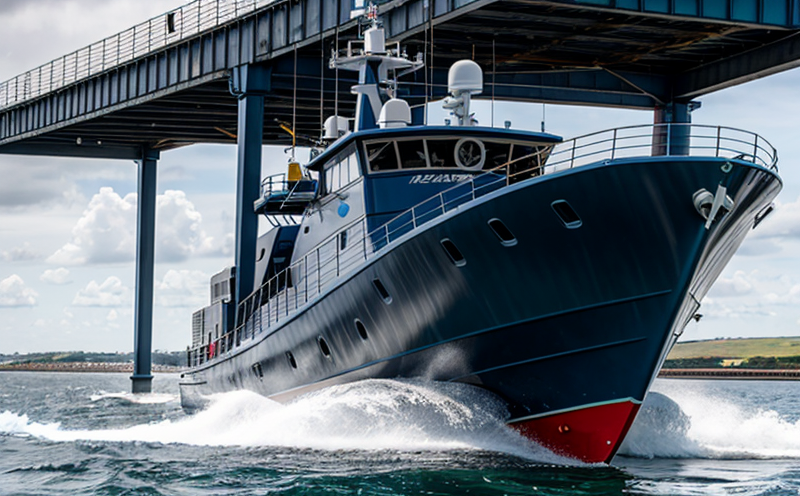ISO 3977 Marine Gas Turbine Performance Testing
The ISO 3977-1:2015 standard specifies a procedure for the determination of specific fuel consumption and specific power output in marine gas turbines. This service ensures that your engine meets the stringent requirements set forth by this international standard, critical for compliance with maritime regulations and ensuring optimal performance.
The testing process involves several key steps to ensure accuracy and reliability. The first step is a detailed inspection of the specimen, which includes verifying all components are in good working order and meet the necessary specifications as per ISO 3977-1:2015. Once this has been confirmed, the engine is then prepared for testing.
The testing itself involves running the engine under controlled conditions to simulate real-world operational scenarios. During these tests, various parameters are continuously monitored using high-precision instrumentation such as flow meters, pressure sensors, and temperature gauges. The data collected during these runs provides a comprehensive picture of the engine's performance.
After completing all necessary test cycles, the results are analyzed thoroughly to ensure they align with the expectations set by ISO 3977-1:2015. If any discrepancies are found, further testing may be required until compliance is achieved. Once satisfied that the engine meets all criteria outlined in the standard, a detailed report is generated summarizing all findings and results.
This service offers several advantages over traditional methods of testing marine gas turbines. For one, it ensures absolute adherence to international standards which can significantly reduce risks associated with non-compliance penalties or potential safety issues on board ships. Additionally, this method provides more accurate measurements than simpler approaches because it accounts for all relevant factors influencing engine performance.
- Comprehensive analysis of engine performance under simulated real-world conditions
- High-precision measurement tools to ensure accuracy and reliability
- Detailed reporting including raw data, graphs, and interpretations
- Expert interpretation of results tailored specifically towards your needs
Why It Matters
The importance of ISO 3977-1:2015 cannot be overstated when it comes to marine gas turbine performance. Compliance with these standards not only ensures that your engines meet regulatory requirements but also enhances overall operational efficiency and safety on board ships.
- Reduces the risk of non-compliance penalties
- Promotes safer operations at sea by ensuring all systems work correctly
- Improves fuel economy leading to cost savings for ship owners
- Enhances reputation among customers who value quality and safety
Eurolab Advantages
At Eurolab, we pride ourselves on delivering top-notch services that meet or exceed the highest industry standards. Our team of experts uses state-of-the-art facilities and cutting-edge technology to provide accurate, reliable testing results.
- State-of-the-art equipment and facilities
- Experienced and certified staff
- Comprehensive analytical capabilities
- Highly secure data management practices
Competitive Advantage and Market Impact
Adopting ISO 3977-1:2015 testing protocols can give your company a significant competitive edge in the market. Not only does it demonstrate commitment to quality and safety but also helps reduce operational costs through improved fuel efficiency.
- Increased market share due to enhanced customer satisfaction
- Potential for higher pricing power given superior product offerings
- Attracting more partners and investors recognizing your commitment to best practices





